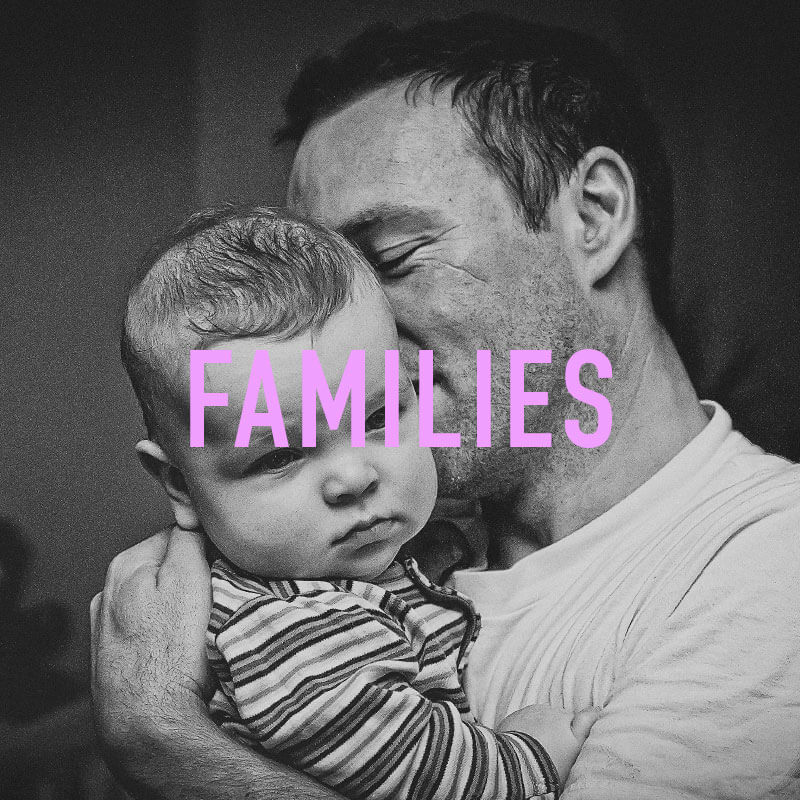Ethics Explainer: Dignity

Ethics Explainer: Dignity
ExplainerPolitics + Human RightsRelationships
BY The Ethics Centre 19 JAN 2017
When we say someone or something has dignity, we mean they have worth beyond their usefulness and abilities. To possess dignity is to have absolute, intrinsic and unconditional value.
The concept of dignity became prominent in the work of Immanuel Kant. He argued objects can be valuable in two different ways. They can have a price or dignity. If something has a price, it is valuable only because it is useful to us. By contrast, things with dignity are valued for their own sake. They can’t be used as tools for our own goals. Instead, we are required to show them respect. For Kant, dignity was what made something a person.
Dignity through the ages
Beliefs about where dignity comes from vary between different philosophical and religious systems. Christians believe humans have dignity because they’re made in the image of God. This is called imago dei. Kant believed humans possessed dignity because they’re rational. Others believe dignity is a way of recognising our common humanity. Some say it’s a social construct we created because it’s useful. Whatever its origin, the concept has become influential in political and ethical discourse today.
A question of human rights
Dignity is often seen as a central notion for human rights. The preamble to the Universal Declaration of Human Rights recognises the “inherent dignity” of “all members of the human family”. By recognising dignity, the Declaration acknowledges ethical limits to the ways we can treat other people.
Kant captured these ethical limits in his idea of respect for persons. In every interaction with another person we are required to treat them as ends in themselves rather than tools to achieve our own goals. We fail to respect people when we treat them as tools for our own convenience or don’t give adequate attention to their needs and wishes.
When it comes to practical matters, it’s not always clear what ‘dignity and respect for persons’ require us to do. For example, in debates around assisted dying (also called assisted suicide or euthanasia) both sides use dignity to argue for opposing conclusions.
Advocates believe the best way to respect dignity is by sparing people from unnecessary or unbearable suffering, while opponents believe dignity requires us never to intentionally kill someone. They claim dignity means a person’s value isn’t diminished by pain or suffering and we are ethically required to remind the patient of this, even if the patient disagrees.
Who makes the rules?
There are also disputes about exactly who is worthy of dignity. Should it be exclusive to humans or extended to animals? And do all animals possess intrinsic value and dignity or just specific species? If animals do have dignity, we’re required to treat them with same respect we afford our fellow human beings.
Ethics in your inbox.
Get the latest inspiration, intelligence, events & more.
By signing up you agree to our privacy policy
You might be interested in…
Opinion + Analysis
Relationships
In defence of platonic romance
Explainer
Relationships
Ethics explainer: The principle of charity
Explainer
Relationships
Ethics Explainer: Perfection
Opinion + Analysis
Relationships
Is existentialism due for a comeback?
BY The Ethics Centre
The Ethics Centre is a not-for-profit organisation developing innovative programs, services and experiences, designed to bring ethics to the centre of professional and personal life.
Ethics Explainer: Hedonism

Hedonism is a philosophy that regards pleasure and happiness as the most beneficial outcome of an action. More pleasure and less pain is ethical. More pain and less pleasure is not.
What is hedonism?
Hedonism is closely associated with utilitarianism. Where utilitarianism says ethical actions are ones that maximise the overall good of a society, hedonism takes it a step further by defining ‘good’ as pleasure.
There are different perspectives on what pleasure and pain really mean. For Epicurus, the ancient Greek philosopher, pleasure was the absence of pain. Though his name has become synonymous with indulgence – “Epicurean holidays”, a food app called “Epicurious” – he advocated finding pleasure in a simple life with a bland diet.
If we live a rich, complex lifestyle we risk suffering more when it ends. Best not to love them to begin with, he suggests.
John Stuart Mill believed in a hierarchy of pleasures. Although sensory pleasures might be the most intense, it was fitting for higher order beings – like humans – to enjoy higher order pleasures – like art. “It is better to be Socrates dissatisfied than a pig satisfied”, he said. (With evidence to suggest pigs can orgasm for up to fifteen minutes, Mill’s account feels a little incomplete).
Most people will agree pleasure and pain are important for determining the value of something. That’s not enough to make you a hedonist. What makes hedonism unique is the claim only pleasure and pain matter. That’s where people tend to be more hesitant.
The experience machine
The philosopher Robert Nozick wanted people to feel the pinch of measuring life only based on pain and pleasure. He developed a thought experiment called the experience machine.
Imagine a machine that can plug into your brain and simulate the most pleasurable life you could imagine. It would respond to your specific desires – you could be a rock star, philosopher or space cowboy depending on what was most pleasurable. But if you plugged in, you could never unplug. Plus, although you’d feel as though you were experiencing amazing things, you’d be floating in a vat, feeding through a tube.
Nozick thought most people would choose not to plug into the machine – proving there was more to life than pleasure and pain. But Nozick’s argument depends on people’s lives being of a certain quality. It’s easier to value hard work and authenticity if you’re confident your life will be pretty pleasurable. For those living in constant fear, pain, or misery, perhaps the authenticity of their experience matters less than some simple moments of bliss.
Ethics in your inbox.
Get the latest inspiration, intelligence, events & more.
By signing up you agree to our privacy policy
You might be interested in…
Opinion + Analysis
Politics + Human Rights, Health + Wellbeing, Society + Culture
I changed my mind about prisons
Opinion + Analysis
Health + Wellbeing, Relationships
Ageing well is the elephant in the room when it comes to aged care
Opinion + Analysis
Health + Wellbeing, Politics + Human Rights, Relationships
CoronaVirus reveals our sinophobic underbelly
Opinion + Analysis
Health + Wellbeing, Relationships
Duties of care: How to find balance in the care you give
BY The Ethics Centre
The Ethics Centre is a not-for-profit organisation developing innovative programs, services and experiences, designed to bring ethics to the centre of professional and personal life.
Ethics Explainer: The Harm Principle

Ethics Explainer: The Harm Principle
ExplainerPolitics + Human RightsRelationships
BY The Ethics Centre 27 OCT 2016
The harm principle says people should be free to act however they wish unless their actions cause harm to somebody else.
The principle is a central tenet of the political philosophy known as liberalism and was first proposed by English philosopher John Stuart Mill.
The harm principle is not designed to guide the actions of individuals but to restrict the scope of criminal law and government restrictions of personal liberty.
For Mill – and the many politicians, philosophers and legal theorists who have agreed with him – social disapproval or dislike (“mere offence”) for a person’s actions isn’t enough to justify intervention by government unless they actually harm or pose a significant threat to someone.
The phrase “Your freedom to swing your fist ends where my nose begins” captures the general sentiment of the principle, which is why it’s usually linked to the idea of “negative rights”. These are demands someone not do something to you. For example, we have a negative right to not be assaulted.
On the other hand, “positive rights” demand that others do certain things for us, like provide healthcare or treat us with basic respect. For this reason, the principle is often used in political debates to discuss the limitations of state power.
There’s no issue with actions that are harmful to the individual themselves. If you want to smoke, drink, or use drugs to excess, you should be free to do so. But if you get behind the wheel of a car while under the influence, pass second-hand smoke onto other people, or become violent on certain drugs, then there’s good reason for the government to get involved.
Attempting to define harm
The sticking point comes in trying to define what counts as harmful. Although it might seem obvious, it’s actually not that easy. For example, if you benefit by winning a promotion at work while other applicants lose out, does this count as being harmful to them?
Mill would argue no. He defines harms as wrongful setbacks to interests to which people have rights. He would argue you wouldn’t be harming anyone by winning a promotion because although their interests are set back, no particular person has a right to a promotion. If it’s earned on merit, then it’s fair. “May the best person win”, so to say.
A more difficult category concerns harmful speech. For Mill, you do not have the right to incite violence – this is obviously harmful as it physically hurts and injures. However, he says you do have the right to offend other people – having your feelings hurt doesn’t count as harm.
Recent debates have questioned this and claim that certain kinds of speech can be as damaging psychologically as a physical attack – either because they’re personally insulting or because they entrench established power dynamics and oppress minorities.
Importantly, Mill believed the harm principle only applied to people who are able to exercise their freedom responsibly. For instance, paternalism over children was acceptable since children are not fully capable of responsibly exercising freedom, but paternalism over fully autonomous adults was not.
Unfortunately, he also thought these measures were appropriate to use against “barbarians”, by which he meant non-Europeans in British colonies like India.
This highlights an important point about the harm principle: the basis for determining who is worthy or capable of exercising their freedom can be subject to personal, cultural or political bias. When making decisions about rights and responsibilities, we should be ever careful about the potential biases that inform who or what we apply them to.
Ethics in your inbox.
Get the latest inspiration, intelligence, events & more.
By signing up you agree to our privacy policy
You might be interested in…
Opinion + Analysis
Business + Leadership, Relationships, Society + Culture
Extending the education pathway
Opinion + Analysis
Relationships
Why have an age discrimination commissioner?
Opinion + Analysis
Health + Wellbeing, Relationships
How to deal with people who aren’t doing their bit to flatten the curve
Explainer
Relationships
Ethics Explainer: Pragmatism
BY The Ethics Centre
The Ethics Centre is a not-for-profit organisation developing innovative programs, services and experiences, designed to bring ethics to the centre of professional and personal life.
Ethics Explainer: Values

On any given day, each of us will experience a rush of emotion and make a decision based on our gut reaction, intuition, or conscience. Someone spits on the street and our ‘against the rules’ or ‘hygiene’ button gets pushed. We see a photo of a child powerless and mistreated and our ‘justice fire’ gets lit.
This gut reaction is an emotional expression of our deeply held beliefs about what we value as right and good. Our values describe what we want to see in the world and how we should behave. This set of views about what is right and wrong is sometimes referred to as our moral compass.
We each hold a personal system of values arranged in order of priority. For example, some people may prioritise personal freedom over security and other people will do the opposite. Many people also hold a collective value system, reflecting a cultural or societal attitude. These different value sets vary in terms of how cohesive they are – they might be complementary or contradictory.
Scholars have categorised values in various ways – religious, political, aesthetic, social, ethical, moral, and so on. One study found ten distinct values recognised across different cultures: power, achievement, hedonism, stimulation, self-direction, universalism, benevolence, tradition, conformity and security.
Values inform and influence our attitudes, choices and behaviours. They provide both conscious and unconscious guidelines for the goals we pursue, how we pursue them, our perceptions of reality, and the ways we engage in the world.
Where do our values come from?
Your values reflect how, where and when you were raised. They are generally received through culture, often transmitted between parents and children. We also learn from the stories we read, things we watch, life challenges, and through experiences of the morally authoritative people in our lives.
Our value system forms when we are young and unaware of what is going on and continues developing throughout our lives, with conscious self-correction and moral development. As we grow older, it can be difficult to shift deep seated values that are no longer appropriate or relevant. But thanks to our capacity for critical discernment, our values are never entirely ‘fixed’.
Why do different people value different things?
Because people grow up in different families with different backgrounds and histories, personal values differ from one person to the next. However, shared experiences lead to some common values. There are more shared values, norms, and patterns of behaviour between of people in the same environment – be it a community, an organisation, a country, or a football team.
Even the same values can look different when practiced by different cultures. For instance, wearing black to a funeral is a mark of respect for human life in some cultures while in others, mourners wear white. Each share the same value – respect for the dead – but the norms surrounding the value differ.
What do we do when values clash?
Have you found yourself torn between telling the truth and avoiding upsetting someone else? Have you ever felt unsure about how to respond to someone with a different value set to your own?
When we face these conflicts, we’ve entered ‘the ethics zone’ and we have to decide what we should do. The process of engaging with the clash involves examining gut reactions, considering other perspectives, consulting with trusted mentors, being open to alternative viewpoints and possibilities, and critically examining our feelings.
The more we engage in this kind of process of ethical reasoning, the better we get at it. This approach strengthens our muscle for ethical decision making so we can respond when our values are in tension. Instead of relying on an unexamined ‘gut instinct’, we hone an informed and reflective conscience to negotiate ethical tension and conflicts of values.
Ethics in your inbox.
Get the latest inspiration, intelligence, events & more.
By signing up you agree to our privacy policy
You might be interested in…
Big thinker
Relationships
Big Thinker: Jeremy Bentham
Opinion + Analysis
Business + Leadership, Health + Wellbeing, Relationships
Moving on from the pandemic means letting go
Opinion + Analysis
Business + Leadership, Relationships, Science + Technology
Are we ready for the world to come?
Opinion + Analysis
Relationships, Society + Culture
I’m really annoyed right now: ‘Beef’ and the uses of anger
BY The Ethics Centre
The Ethics Centre is a not-for-profit organisation developing innovative programs, services and experiences, designed to bring ethics to the centre of professional and personal life.
Ethics Explainer: Ethics, morality & law

Ethics Explainer: Ethics, morality & law
ExplainerPolitics + Human Rights
BY The Ethics Centre 27 SEP 2016
Some people talk about their personal ethics, others talk about a set of morals, and everyone in a society is governed by the same set of laws. They can be easy to conflate.
Knowing the difference and relationship between them is important though, because they can conflict with one another. If the law conflicts with our personal values or a moral system, we have to act – but to do so we need to be able to tell the difference between them.
Ethics
Ethics is a branch of philosophy that aims to answer the basic question, “What should I do?” It’s a process of reflection in which people’s decisions are shaped by their values, principles, and purpose rather than unthinking habits, social conventions, or self-interest.
Our values, principles, and purpose are what give us a sense of what’s good, right, and meaningful in our lives. They serve as a reference point for all the possible courses of action we could choose. On this definition, an ethical decision is one made based on reflection about the things we think are important and that is consistent with those beliefs.
While each person is able to reflect and discover their own sense of what’s good, right, and meaningful, the course of human history has seen different groups unify around different sets of values, purposes and principles. Christians, consequentialists, Buddhists, Stoics and the rest all provide different answers to that question, “What should I do?” Each of these answers is a ‘morality’.
Morality
Many people find morality extremely useful. Not everyone has the time and training to reflect on the kind of life they want to live, considering all the different combinations of values, principles, and purposes. It’s helpful for them to have a coherent, consistent account that has been refined through history and can be applied in their day to day lives.
Many people also inherit their morality from their family, community or culture – it’s rare for somebody to ‘shop around’ for the morality that most closely fits their personal beliefs. Usually the process is unconscious. There’s a challenge here: if we inherit a ready-made answer to the question of how we should live, it’s possible to apply it to our lives without ever assessing whether the answer is satisfactory or not.
We might live our whole lives under a moral system which, if we’d had the chance to think about, we would have rejected in part or in full.
Law
The law is different. It’s not a morality in the strict sense of the word because, at least in democratic nations, it tries to create a private space where individuals can live according to their own ethical beliefs or morality. Instead, the law tries to create a basic, enforceable standard of behaviour necessary in order for a community to succeed and in which all people are treated equally.
Because of this, the law is narrower in focus than ethics or morality. There are some matters the law will be agnostic on but which ethics and morality have a lot to say. For example, the law will be useless to you if you’re trying to decide whether to tell your competitor their new client has a reputation for not paying their invoices, but our ideas about what’s good and right will still guide our judgement here.
There is a temptation to see the law and ethics as the same – so long as we’re fulfilling our legal obligations we can consider ourselves ‘ethical’. This is mistaken on two fronts. First, the law outlines a basic standard of behaviour necessary for our social institutions to keep functioning. For example, it protects basic consumer rights. However, in certain situations the right thing to in solving a dispute with a customer might require us to go beyond our legal obligations.
Secondly, there may be times when obeying the law would require us to act against our ethics or morality. A doctor might be obligated to perform a procedure they believe is unethical or a public servant might believe it’s their duty to leak classified information to the press. Some philosophers have argued that a person’s conscience is more binding on them than any law, which suggests to the letter of the law won’t be an adequate substitute for ethical reflection.
Ethics in your inbox.
Get the latest inspiration, intelligence, events & more.
By signing up you agree to our privacy policy
You might be interested in…
Opinion + Analysis
Society + Culture, Politics + Human Rights
‘The Zone of Interest’ and the lengths we’ll go to ignore evil
Explainer
Politics + Human Rights, Relationships
Ethics Explainer: The Harm Principle
Opinion + Analysis
Politics + Human Rights, Society + Culture
Making sense of our moral politics
Explainer
Politics + Human Rights
Ethics Explainer: Rights and Responsibilities
BY The Ethics Centre
The Ethics Centre is a not-for-profit organisation developing innovative programs, services and experiences, designed to bring ethics to the centre of professional and personal life.
Ethics Explainer: Ethics

What is ethics?
If you’re struggling to answer this, you’re not alone. Despite considering ethics a crucial part of our lives in a variety of different contexts, a common definition of the word can elude us.
Most of us are comfortable labelling products, people, and businesses ‘ethical’ and ‘unethical’. So, let’s get a clear understanding of these titles mean.
Here’s an easy way of breaking ethics down into four areas.
The question
Ethics is a process of reflection. We ‘do ethics’ every time we try to answer the question, “What should I do?”
Ethics doesn’t discount emotional responses but it does require us to be thoughtful when weighing up a decision. Rather than acting on instinct alone, ethics asks us to reasonably consider our options. An assessment of what we know, what we assume and what we believe, helps us choose a course of action most consistent with what we think is good and right.
While ethics is a branch of philosophy concerned with what’s right and wrong, it doesn’t seek to produce a list of rules to apply to all people at all times. Two people can both think ‘ethically’ about a situation and come up with very different decisions about what they should do.
Turning to an ethicist to get a definite answer on what’s right and wrong misses the point. Reflecting on the question “What should I do?” helps us discover and live by our values, principles, and purpose.
Values – ‘What’s good’
When faced with a decision, every person is going to choose the option they believe is best. It could be self-destructive, mean, or foolish – but the decision maker will always see more good in the option they settle on.
When you decide what you want to eat for lunch, you’ll consider a range of possibilities and choose one you think is good. Sometimes you might define good as ‘healthy’, other times as ‘tasty’, sometimes as ‘cheap’ and occasionally as a combination of all of them. Once you’ve got your definition down, you’re going to pick the option you think is most good.
Values are what help us define what’s good. Some of these will be unique to the individual but many values are held in common by cultures all around the world because they speak to the basic needs of human beings.
Freedom, safety, community, education, and health are all valued by people from very different walks of life. Each culture may express their values differently – norms of friendship will differ between cultures – but the basic value is still the same.
We tend to value lots of different things and prioritise them differently depending on our circumstances. In our youth we might rank excitement and fun over safety but later in life those values could shift in the other direction. This reflects changing beliefs about how much good is preserved by each value and how much they matter to us.
Principles – ‘What’s right’
Knowing what’s ‘good’ is an important step in ethical decision-making, but most of us believe there are better and worse ways of getting the things we value. We value honesty but are still careful with how we give criticism to colleagues – even if it would be more honest to be blunt.
This is the role of principles – they help us identify the right or wrong way to achieve the things we value. Some common examples are:
The Golden Rule: Treat other people the way you’d like to be treated.
Universality: Don’t ask other people to act in a way you wouldn’t be willing to act in the same situation.
Machiavellian: I’ll do what works and gets me what I want, no matter how it affects other people.
Notice how these principles are value-neutral? This means you can use them no matter what your values are – some may even seem unethical to you. Different people want to be treated in different ways – some gently and others with ‘tough love’ – but everyone can use the Golden Rule as a way to guide their decisions.
Purpose – picking your values and principles
There are a huge amount of values and principles to choose between. Many of us don’t choose at all, sticking with the systems we inherited from family, culture, or religion.
If we were to choose, which ones would we decide to act on? Which ones would we care about most? This is where understanding our defining purpose is important.
Some philosophers believe every person has the same purpose – like flourishing, maximising wellbeing for others, or fulfilling their obligations. Others think people should be able to find or choose their own purpose.
What our purpose should be is hard to determine. Organisations have an easier run of it – they’re usually designed with a purpose in mind and can choose principles and values accordingly.
For example, news organisations exist to inform the public. From this they can find values like truth and integrity as well as principles like impartiality and rigorous checking of sources.
Some individuals have thought about purpose in terms of ‘vocations’ – the types of activities we commit our lives to. These can include professional roles but can also include things like parenting, volunteer work, or self-improvement.
The initial question, values, principles and purpose form the building blocks of our ethical thinking. They don’t provide us with easy answers to the question ‘What should I do?’, but they help us to understand what a good answer might look like.
Ethics in your inbox.
Get the latest inspiration, intelligence, events & more.
By signing up you agree to our privacy policy
You might be interested in…
Opinion + Analysis
Business + Leadership, Relationships
The twin foundations of leadership
Opinion + Analysis
Relationships
Come join the Circle of Chairs
Opinion + Analysis
Relationships
Parenting philosophy: Stop praising mediocrity
Opinion + Analysis
Relationships, Society + Culture
A parade of vices: Which Succession horror story are you?
BY The Ethics Centre
The Ethics Centre is a not-for-profit organisation developing innovative programs, services and experiences, designed to bring ethics to the centre of professional and personal life.
Ethics Explainer: The Sunlight Test

Ethics Explainer: The Sunlight Test
ExplainerRelationships
BY Kym Middleton The Ethics Centre 8 SEP 2016
You can use the sunlight test by asking yourself, would I do the same thing if I knew my actions would end up on the front page of the newspaper tomorrow?
It’s an easy way to test an ethical decision before you act on it.
This test is most useful as a guard against moral temptations – where we stand to gain a great deal for doing something unethical. Moral temptations are strongest when the likelihood of punishment is low and what you stand to gain outweighs the ethical costs of doing the wrong thing.
Here’s a quick example
Say you have the chance to lie to your employer about a lunch you just took. It was meant to be with a client, but they cancelled at the last minute. You were already at the restaurant and ran into some friends and spent a couple of hours together.
If there’s not much chance of getting caught, do you tell your boss you were at a work lunch and charge the bill back to the company, or be honest and accept getting in a bit of trouble for taking an extended break?
This is a situation where the sunlight test can be really helpful. By taking the belief that we won’t get caught out of the equation, we’re able to determine whether our actions would stand up to public scrutiny.
It’s a really good way of ensuring we’re being motivated by what we think is good or right, and not by self-interest.
But what if I definitely won’t get caught?
The sunlight test is not actually about whether or not you’ll get busted. Often, it’s best used when it’s unlikely we’ll get caught doing the wrong thing. What we need to examine is whether a well informed but impartial third party would believe what we were doing is okay.
Although the sunlight test can be used by any person, it’s especially important for people whose professional roles put them in positions of public scrutiny – politicians, police, judges, journalists, and so on. For these people there is a real possibility their actions will end up on the front of the newspaper.
This means the sunlight test should be a daily part of their decision making.
However, even though there is a chance they’ll end up in the news, it’s still crucial public figures do what they believe is right. The sunlight test doesn’t ask us to imagine what the most popular course of action would be, but how our actions would be perceived by a reasonable and fair minded third party.
Ethics in your inbox.
Get the latest inspiration, intelligence, events & more.
By signing up you agree to our privacy policy
You might be interested in…
Opinion + Analysis
Relationships
Appreciation or appropriation? The impacts of stealing culture
Explainer
Relationships
Ethics Explainer: Plato’s Cave
Opinion + Analysis
Relationships
When identity is used as a weapon
Opinion + Analysis
Relationships
What we owe our friends
BY Kym Middleton
Former Head of Editorial & Events at TEC, Kym Middleton is a freelance writer, artistic producer, and multi award winning journalist with a background in long form TV, breaking news and digital documentary. Twitter @kymmidd
BY The Ethics Centre
The Ethics Centre is a not-for-profit organisation developing innovative programs, services and experiences, designed to bring ethics to the centre of professional and personal life.
Ethics Explainer: Social Contract

Social contract theories see the relationship of power between state and citizen as a consensual exchange. It is legitimate only if given freely to the state by its citizens and explains why the state has duties to its citizens and vice versa.
Although the idea of a social contract goes as far back as Epicurus and Socrates, it gained popularity during The Enlightenment thanks to Thomas Hobbes, John Locke and Jean-Jacques Rousseau. Today the most popular example of social contract theory comes from John Rawls.
The social contract begins with the idea of a state of nature – the way human beings would exist in the world if they weren’t part of a society. Philosopher Thomas Hobbes believed that because people are fundamentally selfish, life in the state of nature would be “nasty, brutish and short”. The powerful would impose their will on the weak and nobody could feel certain their natural rights to life and freedom would be respected.
Hobbes believed no person in the state of nature was so strong they could be free from fear of another person and no person was so weak they could not present a threat. Because of this, he suggested it would make sense for everyone to submit to a common set of rules and surrender some of their rights to create an all-powerful state that could guarantee and protect every person’s right. Hobbes called it the ‘Leviathan’.
It’s called a contract because it involves an exchange of services. Citizens surrender some of their personal power and liberty. In return the state provides security and the guarantee that civil liberty will be protected.
Crucially, social contract theorists insist the entire legitimacy of a government is based in the reciprocal social contract. They are legitimate because they are the only ones the people willingly hand power to. Locke called this popular sovereignty.
Unlike Hobbes, Locke thought the focus on consent and individual rights meant if a group of people didn’t agree with significant decisions of a ruling government then they should be allowed to join together to form a different social contract and create a different government.
Not every social contract theorist agrees on this point. Philosophers have different ideas on whether the social contract is real, or if it’s a fictional way to describe the relationship between citizens and their government.
If the social contract is a real contract – just like your employment contract – people could be free not to accept the terms. If a person didn’t agree they should give some of their income to the state they should be able to decline to pay tax and as a result, opt out of state-funded hospitals, education, and all the rest.
Like other contracts, withdrawing comes with penalties – so citizens who decide to stop paying taxes may still be subject to punishment.
Other problems arise when the social contract is looked at through a feminist perspective. Historically, social contract theories, like the ones proposed by Hobbes and Locke, say that (legitimate) state authority comes from the consent of free and equal citizens.
Philosophers like Carole Pateman challenge this idea by noting that it fails to deal with the foundation of male domination that these theories rest on.
For Pateman the myth of autonomous, free and equal individual citizens is just that: a myth. It obscures the reality of the systemic subordination of women and others.
In Pateman’s words the social contract is first and foremost a ‘sexual contract’ that keeps women in a subordinate role. The structural subordination of women that props up the classic social contract theory is inherently unjust.
The inherent injustice of social contract theory is further highlighted by those critics that believe individual citizens are forced to opt in to the social contract. Instead of being given a choice, they are just lumped together in a political system which they, as individuals, have little chance to control.
Of course, the idea of individuals choosing not to opt in or out is pretty impractical – imagine trying to stop someone from using roads or footpaths because they didn’t pay tax.
To address the inherent inequity in some forms of social contract theory, John Rawls proposes a hypothetical social contract based on fundamental principles of justice. The principles are designed to provide a clear rationale to guide people in choosing to willingly agree to surrender some individual freedoms in exchange for having some rights protected. Rawls’ answer to this question is a thought experiment he calls the veil of ignorance.
By imagining we are behind a veil of ignorance with no knowledge of our own personal circumstances, we can better judge what is fair for all. If we do so with a principle in place that would strive for liberty for all at no one else’s expense, along with a principle of difference (the difference principle) that guarantees equal opportunity for all, as a society we would have a more just foundation for individuals to agree to a contract that in which some liberties would be willingly foregone.
Out of Rawls’ focus on fairness within social contract theory comes more feminist approaches, like that of Jean Hampton. In addition to criticising Hobbes’ theory, Hampton offers another feminist perspective that focuses on extending the effects of the social contract to interpersonal relationships.
In established states, it can be easy to forget the social contract involves the provision of protection in exchange for us surrendering some freedoms. People can grow accustomed to having their rights protected and forget about the liberty they are required to surrender in exchange.
Whether you think the contract is real or just a useful metaphor, social contract theory offers many unique insights into the way citizens interact with government and each other.
Ethics in your inbox.
Get the latest inspiration, intelligence, events & more.
By signing up you agree to our privacy policy
You might be interested in…
Opinion + Analysis
Politics + Human Rights, Business + Leadership
Political promises and the problem of ‘dirty hands’
Opinion + Analysis
Health + Wellbeing, Politics + Human Rights
Constructing an ethical healthcare system
Opinion + Analysis
Politics + Human Rights, Relationships
Who’s your daddy?
Opinion + Analysis
Politics + Human Rights
McKenzie… a fractured cog in a broken wheel
BY The Ethics Centre
The Ethics Centre is a not-for-profit organisation developing innovative programs, services and experiences, designed to bring ethics to the centre of professional and personal life.
Ethics Explainer: Eudaimonia

The closest English word for the Ancient Greek term eudaimonia is probably “flourishing”.
The philosopher Aristotle used it as a broad concept to describe the highest good humans could strive toward – or a life ‘well lived’.
Though scholars translated eudaimonia as ‘happiness’ for many years, there are clear differences. For Aristotle, eudaimonia was achieved through living virtuously – or what you might describe as being good. This doesn’t guarantee ‘happiness’ in the modern sense of the word. In fact, it might mean doing something that makes us unhappy, like telling an upsetting truth to a friend.
Virtue is moral excellence. In practice, it is to allow something to act in harmony with its purpose. As an example, let’s take a virtuous carpenter. In their trade, virtue would be excellences in artistic eye, steady hand, patience, creativity, and so on.
The eudaimon [yu-day-mon] carpenter is one who possesses and practices the virtues of his trade.
By extension, the eudaimon life is one dedicated to developing the excellences of being human. For Aristotle, this meant practicing virtues like courage, wisdom, good humour, moderation, kindness, and more.
Today, when we think about a flourishing person, virtue doesn’t always spring to mind. Instead, we think about someone who is relatively successful, healthy, and with access to a range of the good things in life. We tend to think flourishing equals good qualities plus good fortune.
This isn’t far from what Aristotle himself thought. Although he did believe the virtuous life was the eudaimon life, he argued our ability to practice the virtues was dependent on other things falling in our favour.
For instance, Aristotle thought philosophical contemplation was an intellectual virtue – but to have the time necessary for contemplation you would need to be wealthy. Wealth (as we all know) is not always a product of virtue.
Some of Aristotle’s conclusions seem distasteful by today’s standards. He believed ugliness was a hindrance to developing practical social virtues like friendship (because nobody would be friends with an ugly person).
However, there is something intuitive in the observation that the same person, transformed into the embodiment of social standards of beauty, would – everything else being equal – have more opportunities available to them.
In recognising our ability to practice virtue might be somewhat outside our control, Aristotle acknowledges our flourishing is vulnerable to misfortune. The things that happen to us can not only hurt us temporarily, but they can put us in a condition where our flourishing – the highest possible good we can achieve – is irrevocably damaged.
For ethics, this is important for three reasons.
First, because when we’re thinking about the consequences of an action we should take into account their impact on the flourishing of others. Second, it suggests we should do our best to eliminate as many barriers to flourishing as we possibly can. And thirdly, it reminds us that living virtuously needs to be its own reward. It is no guarantee of success, happiness or flourishing – but it is still a central part of what gives our lives meaning.
Ethics in your inbox.
Get the latest inspiration, intelligence, events & more.
By signing up you agree to our privacy policy
You might be interested in…
Opinion + Analysis
Relationships
Our desire for reality: What OnlyFans says about sexual fantasy
Opinion + Analysis
Relationships
Elf on the Shelf is a fun and festive way to teach your child to submit to the surveillance state
Opinion + Analysis
Relationships, Society + Culture
Meet Eleanor, our new philosopher in residence
Opinion + Analysis
Relationships, Society + Culture
The problem with Australian identity
BY The Ethics Centre
The Ethics Centre is a not-for-profit organisation developing innovative programs, services and experiences, designed to bring ethics to the centre of professional and personal life.
Ethics Explainer: Just War Theory

Just war theory is an ethical framework used to determine when it is permissible to go to war. It originated with Catholic moral theologians like Augustine of Hippo and Thomas Aquinas, though it has had a variety of different forms over time.
Today, just war theory is divided into three categories, each with its own set of ethical principles. The categories are jus ad bellum, jus in bello, and jus post bellum. These Latin terms translate roughly as ‘justice towards war’, ‘justice in war’, and ‘justice after war’.
Jus ad bellum
When political leaders are trying to decide whether to go to war or not, just war theory requires them to test their decision by applying several principles:
- Is it for a just cause?
This requires war only be used in response to serious wrongs. The most common example of just cause is self-defence, though coming to the defence of another innocent nation is also seen as a just cause by many (and perhaps the highest cause).
- Is it with the right intention?
This requires that war-time political leaders be solely motivated, at a personal level, by reasons that make a war just. For example, even if war is waged in defence of another innocent country, leaders cannot resort to war because it will assist their re-election campaign.
- Is it from a legitimate authority?
This demands war only be declared by leaders of a recognised political community and with the political requirements of that community.
- Does it have due proportionality?
This requires us to imagine what the world would look like if we either did or didn’t go to war. For a war to be ‘just’ the quality of the peace resulting from war needs to superior to what would have happened if no war had been fought. This also requires we have some probability of success in going to war – otherwise people will suffer and die needlessly.
- Is it the last resort?
This says we should explore all other reasonable options before going to war – negotiation, diplomacy, economic sanctions and so on.
Even if the principles of jus ad bellum are met, there are still ways a war can be unjust.
Jus in bello
These are the ethical principles that govern the way combatants conduct themselves in the ‘theatre of war’.
- Discrimination requires combatants only to attack legitimate targets. Civilians, medics and aid workers, for example, cannot be the deliberate targets of military attack. However, according the principle of double-effect, military attacks that kill some civilians as a side-effect may be permissible if they are both necessary and proportionate.
- Proportionality applies to both jus ad bellum and jus in bello. Jus in bello requires that in a particular operation, combatants do not use force or cause harm that exceeds strategic or ethical benefits. The general idea is that you should use the minimum amount of force necessary to achieve legitimate military aims and objectives.
- No intrinsically unethical means is a debated principle in just war theory. Some theorists believe there are actions which are always unjustified, whether or not they are used against enemy combatants or are proportionate to our goals. Torture, shooting to maim and biological weapons are commonly-used examples.
- ‘Following orders’ is not a defence as the war crime tribunals after the Second World War clearly established. Military personnel may not be legally or ethically excused for following illegal or unethical orders. Every person bearing arms is responsible for their conduct – not just their commanders.
Jus post bello
Once a war is completed, steps are necessary to transition from a state of war to a state of peace. Jus post bello is a new area of just war theory aimed at identifying principles for this period. Some of the principles that have been suggested (though there isn’t much consensus yet) are:
- Status quo ante bellum, a Latin term meaning ‘the way things were before war’ – basically rights, property and borders should be restored to how they were before war broke out. Some suggest this is a problem because those can be the exact conditions which led to war in the first place.
- Punishment for war crimes is a crucial step to re-installing a just system of governance. From political leaders down to combatants, any serious offences on either side of the conflict need to be brought to justice.
- Compensation of victims suggests that, as much as possible, the innocent victims of conflict be compensated for their losses (though some of the harms of war will be almost impossible to adequately compensate, such as the loss of family members).
- Peace treaties need to be fair and just to all parties, including those who are guilty for the war occurring.
Just war theory provides the basis for exercising ‘ethical restraint’ in war. Without restraint, philosopher Michael Ignatieff, argues there is no way to tell the difference between a ‘warrior’ and a ‘barbarian’.
Ethics in your inbox.
Get the latest inspiration, intelligence, events & more.
By signing up you agree to our privacy policy
You might be interested in…
Opinion + Analysis
Politics + Human Rights, Science + Technology
Who’s to blame for Facebook’s news ban?
Opinion + Analysis
Health + Wellbeing, Politics + Human Rights, Relationships, Science + Technology
The value of a human life
Opinion + Analysis
Climate + Environment, Politics + Human Rights
Are we prepared for climate change and the next migrant crisis?
Opinion + Analysis
Politics + Human Rights, Relationships, Science + Technology









































